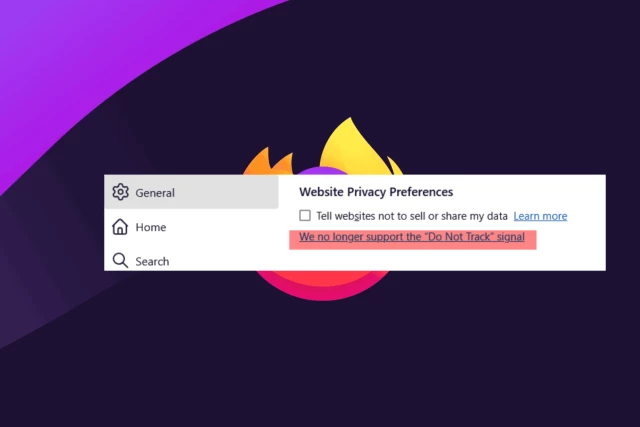(edit at the bottom: Maybe I misunderstand) #mozilla. First they buy a web advertising company. Then, within months of closing that purchase, they remove the DNT header. Look: it’s true that most sites ignore it. Its practical impact is basically nil. But it has a moral purpose.
Every website writes terms in tiny print that says “by coming to this web site, even once, you agree to the following 9 pages of legal terms”
I like having the same fine print in every web request I make. “In case you were wondering, no I don’t consent to tracking.” Make it clear that they are tracking without my consent. If they were at all interested in my consent they have an affirmative indicator that doesn’t need interpreting. They can’t plead ignorance and they can’t say that the only way I can indicate consent is through some silly web form that they devise.
I previously wrote:
> I can’t imagine any POSITIVE benefit that would make the work of removing t
... Show more...(edit at the bottom: Maybe I misunderstand) #mozilla. First they buy a web advertising company. Then, within months of closing that purchase, they remove the DNT header. Look: it’s true that most sites ignore it. Its practical impact is basically nil. But it has a moral purpose.
Every website writes terms in tiny print that says “by coming to this web site, even once, you agree to the following 9 pages of legal terms”
I like having the same fine print in every web request I make. “In case you were wondering, no I don’t consent to tracking.” Make it clear that they are tracking without my consent. If they were at all interested in my consent they have an affirmative indicator that doesn’t need interpreting. They can’t plead ignorance and they can’t say that the only way I can indicate consent is through some silly web form that they devise.
I previously wrote:
> I can’t imagine any POSITIVE benefit that would make the work of removing this feature jump to the top of any priority list. I can imagine a long list of possible negative reasons. Ways in which this feature runs counter to their new goals as an org.
Several people have pointed out that DNT helps trackers fingerprint your browser more accurately, but doesn't result in any greater privacy. The W3C specification for GPC says that it might reduce privacy and make information available for fingerprinting. It provides no rationale to say how GPC preserves privacy differently from DNT. So I'm not seeing the explanation around "DNT let's you get fingerprinted but GPC doesn't." What am I missing?
#privacy
windowsreport.com/mozilla-fire…
W3C Spec: w3c.github.io/gpc/#privacy

Firefox is removing the Do Not Track setting from version 135 onwards. Mozilla recommends using Global Privacy Control setting as alternative,
Venkat (WindowsReport)
